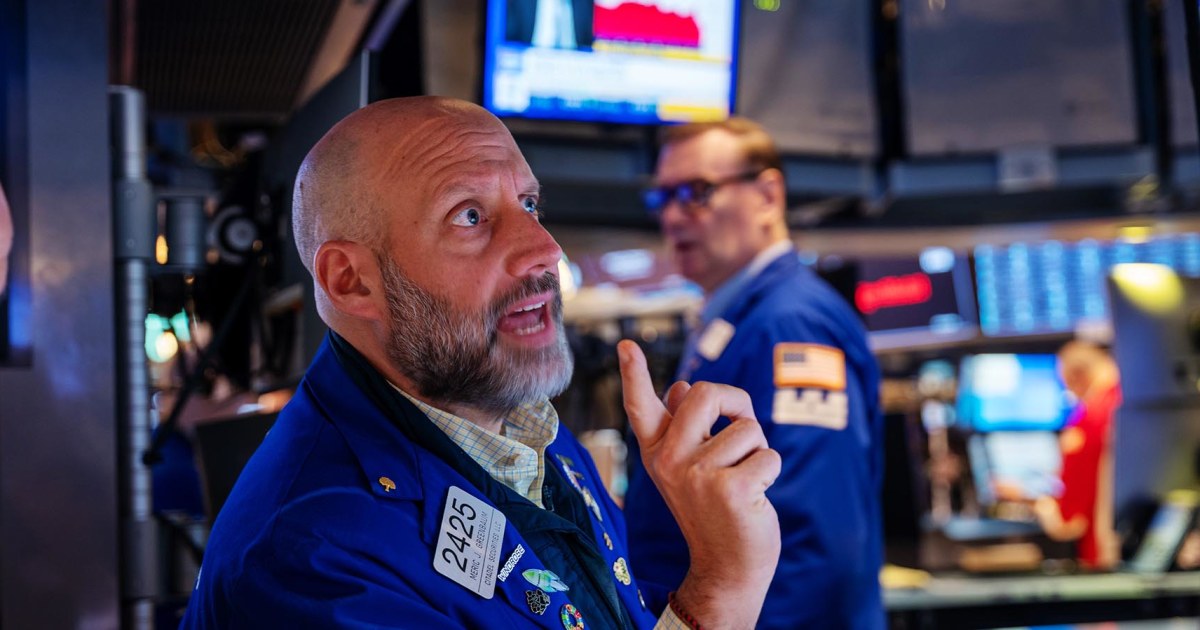Markets sink as debt worries hammer U.S. bonds

Fears of a global government borrowing glut — likely to be compounded by the GOP’s spending and tax-cuts bill — helped fuel an unusually weak auction for U.S. government bonds that sent markets into a tailspin Wednesday.
The broad S&P 500 fell 1.6%, while the Dow Jones Industrial Average declined more than 800 points, or 2%. The tech-heavy Nasdaq was off 1.4%.
Investors are increasingly worried that central banks the world over, including the U.S. Federal Reserve, will have to hold interest rates higher for longer. That scenario could help to keep a lid on inflation, which can be fueled by rising levels of government spending.
It’s an issue ratings firm Moody’s highlighted last Friday when it stripped America’s debt of its prime AAA status. While the market’s initial reaction to the downgrade was relatively muted, a combination of fears of rising interest rates abroad and the impact from the budget bill sought by President Donald Trump sent bond investors over the edge Wednesday.
Dubbed by the president as “one big beautiful bill,” the proposed legislation would extend Trump’s 2017 tax cuts while raising the debt limit by $4 trillion. It would also boost spending for immigration enforcement and military, while making cuts to areas like Medicaid and clean energy tax credits.
Third-party, ostensibly non-partisan groups like the Congressional Budget Office and the Penn Wharton Budget Model have said the bill would fail to meaningfully address America’s debt and deficit issues — assertions that White House officials have disputed.
Bond investors may have the final say.
A Wednesday afternoon auction for bonds that pay off after 20 years saw investors asking for a significantly higher return than they did for a similar auction a month ago, Dow Jones reported. The category of bidders for the bonds that include foreign central banks saw lower participation.
That caused bond yields, or the percentage amount that investors demand in return for lending to the government, to surge. The yield on the 10-year note reached its highest level since February, climbing to as much as 4.6%, while the yield on the 30-year note reached more than 5%, its highest level in 18 years.
When bond yields go up, it means governments have to pay more in interest — and have less money to spend on other areas — unless they borrow even more money, which risks igniting inflation.
“The market’s queasy here with this move in rates,” said Peter Boockvar, chief investment officer at Bleakley Financial Group and author of The Boock Report newsletter.
He said the likely contents of the final spending bill, plus the recent recovery by stocks after Trump’s “Liberation Day” tariffs announcement sent them plunging, make it increasingly likely that the Federal Reserve will keep interest rates elevated for the foreseeable future.
That, in turn, means less money would be available to help bid up stock prices, Boockvar said.
“Investors have become highly sensitive to further rises in interest rates,” he said.
Wednesday’s poor U.S. auction results were compounded by economic concerns about Japan and the U.K., whose central banks are facing increasing pressure to keep interest rates higher amid inflation and spending jumps. In the U.K., inflation jumped more than expected last month while Japanese investors pushed the rate of return they demand to lend to that country to levels not seen in 25 years.
The upshot is that investors worldwide are increasingly worried about governments’ abilities to pay back their debts in a timely manner without forcing price growth throughout their respective economies to accelerate.
House Speaker Mike Johnson and members of the hard-right House Freedom Caucus were slated to meet with Trump at the White House Wednesday afternoon to discuss the budget legislation.
[title_words_as_hashtags




